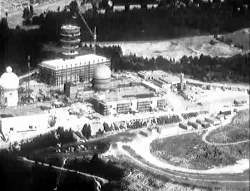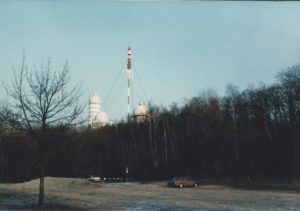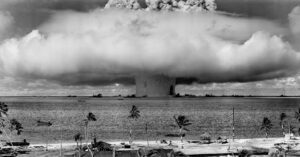Jonathan Dyer's Blog: The Nick Temple Files, page 8
May 28, 2022
We Chain Ourselves to Our Past
 We are shackled to the past, either through our own deeds or the deeds of others. Witness the reverence for the actions of this country’s founders when such reverence results in the severest of quantifiable harms, i.e., death, with little to no quantifiable benefit. That reverence may be little more than a veneer covering personal preferences, but it is trotted out by those wishing to sound serious, contemplative, and profound. It isn...
We are shackled to the past, either through our own deeds or the deeds of others. Witness the reverence for the actions of this country’s founders when such reverence results in the severest of quantifiable harms, i.e., death, with little to no quantifiable benefit. That reverence may be little more than a veneer covering personal preferences, but it is trotted out by those wishing to sound serious, contemplative, and profound. It isn...
May 19, 2022
Learning to Write via Twitter
 I’ve been on and off Twitter a number of times over the years. I’ll stick it out for a while, grow weary of the experience and withdraw, and later convince myself that it’s important for me to be on it to (barely) market my books. I recently returned after a several-month hiatus. My strategy on this go around was to avoid political Twitter as much as possible given the vituperative nature of the public “debate” on the platform. I tried to limit myself to what...
I’ve been on and off Twitter a number of times over the years. I’ll stick it out for a while, grow weary of the experience and withdraw, and later convince myself that it’s important for me to be on it to (barely) market my books. I recently returned after a several-month hiatus. My strategy on this go around was to avoid political Twitter as much as possible given the vituperative nature of the public “debate” on the platform. I tried to limit myself to what...
May 17, 2022
Historical Fiction’s Vast Possibilities
 NSA’s Listening Post on Teufelsberg in Berlin During Construction in 1970
NSA’s Listening Post on Teufelsberg in Berlin During Construction in 1970The Nick Temple Files can be read as historical fiction. Each book is set during the Cold War, and each references and is influenced by events that are contemporaneous with that book’s plot. I’m working on number seven in the series. It has a working title of Nonessential Personnel, and is at the moment centered in Berlin in 1970.
One obvious requirement for writing historical fiction is res...
May 13, 2022
Finding the Elusive Right Word
 “The TV was still loud, but it was nothing more than background noise since I’d grown accustomed to its noisy clack-clacking indelibly competing with my parents’ riotous profusion of human exhaust.”
“The TV was still loud, but it was nothing more than background noise since I’d grown accustomed to its noisy clack-clacking indelibly competing with my parents’ riotous profusion of human exhaust.”
That’s the last sentence of my short story “Domestic Partners.” It’s one of 27 stories in my collection A String of Beads. I’m in the process of shopping the collection around, seeing if I can drum up any interest in it. That last sentence of “Domestic Partners” t...
May 10, 2022
The Cold War Bad Guys are Back!

When the Cold War ended with the collapse of the Warsaw Pact and the Soviet Union, it took with it a sizable supply of bad actors available for fictional exploitation. Convenient nests of villains like Stasi and the KGB either disappeared or got makeovers. The KGB, for instance, emerged as FSB, an acronym currently bereft of the sinister connotations of its predecessor. Writers of all sorts went casting about for a different set of villains.
W...
May 6, 2022
A New Nick Temple File Takes Shape
 Teufelsberg, working home of Field Station Berlin during the Cold War
Teufelsberg, working home of Field Station Berlin during the Cold WarToday was one of those days, and I mean that the good way. I’ve been scratching around looking for the heart of Nick Temple File no. 7. I want to set it in 1970, so for weeks I’ve fixated on that year looking for an historic event around which I could wrap the next installment in the Nick Temple File series. No luck. It’s not that 1970 wasn’t an eventful year. It’s just that nothing ...
May 5, 2022
Characterization Through Landscape
 Setting as More than Metaphor and Imagery
Setting as More than Metaphor and ImageryFor most fiction, setting matters. I imagine some experimental fiction eschews setting in a way I’ve never considered, but my guess is that approach is the exception rather than the rule. The setting in which a story takes place provides context and contour, challenges and opportunities, imagery and metaphor. It influences the people and events in a story in a natural and coherent way that can both resonate with a reader...
April 28, 2022
Characterization through Descriptions of Daily Habits
 Someone on Twitter recently asked about the need to describe the daily habits of a character in a work of fiction. Is it advisable to include details about eating habits, about dressing, about hygiene, about the myriad moments that comprise a character’s day or life? In my view, as with any other element in a work of fiction, the answer lies in the relationship of those details to the overall story. If the details contribute to the story in some...
Someone on Twitter recently asked about the need to describe the daily habits of a character in a work of fiction. Is it advisable to include details about eating habits, about dressing, about hygiene, about the myriad moments that comprise a character’s day or life? In my view, as with any other element in a work of fiction, the answer lies in the relationship of those details to the overall story. If the details contribute to the story in some...
April 27, 2022
Nukes and the Cold War
 A Cold War test of a nuclear bomb
A Cold War test of a nuclear bombOne of the characteristics of the Cold War was the nuclear arms race and all that it entailed. From “sabre rattling” to “brinksmanship” to “mutually assured destruction”, the fact that two antagonistic countries possessed the ability to literally destroy the earth within a matter of a few hours was never far from the front of policy makers’ minds for at least three decades. A natural result of that state of affairs is...
April 25, 2022
Dialogue in Historical Fiction
 It’s early November, 1956. Two men, both young foreign service careerists in Washington, D.C., meet at a small café for coffee and a donut before heading to work. It’s their habit to discuss the major foreign policy events of the day as a way of prepping for the dynamic and challenging work environment that is Foggy Bottom’s hallmark. They shake hands as they meet at the café door. They step inside. Before reaching the counter to order, one...
It’s early November, 1956. Two men, both young foreign service careerists in Washington, D.C., meet at a small café for coffee and a donut before heading to work. It’s their habit to discuss the major foreign policy events of the day as a way of prepping for the dynamic and challenging work environment that is Foggy Bottom’s hallmark. They shake hands as they meet at the café door. They step inside. Before reaching the counter to order, one...
The Nick Temple Files
- Jonathan Dyer's profile
- 19 followers



